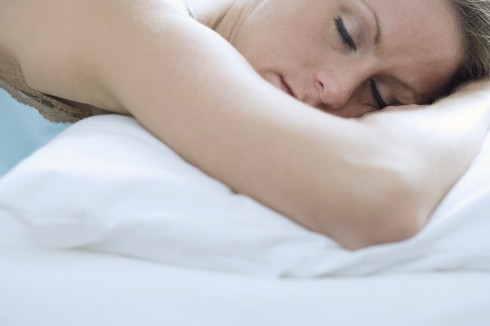Balanced Living
Are You Getting Your Zzzzz’s?
Posted by Arja on June 20 in Holistic Health
Do you have trouble falling asleep at night, tossing and turning in frustration for what seems like an eternity? Perhaps you fall asleep when you get into bed, but wake up a few hours later and can’t get back to sleep right away or maybe you even have some combination of both problems. No matter what form your sleep troubles take, if you’re not waking up in the morning feeling rested and ready to face your day then you’re not getting a good night’s sleep.

Getting enough sleep is probably one of the most important things that you can do for your body and mind, yet many of us are walking around in a chronic state of sleep deprivation. Burning the midnight oil in an attempt to get caught up on things not accomplished during the day may be sabotaging your ability to function the following day. It’s not just about having a few coffees so that the caffeine perks you up the next morning. There is a laundry list of things your body does while you sleep, and while the occasional late night probably won’t do too much damage, chronic sleep deprivation may be at the root of many of your health issues.
Having trouble shedding that extra weight? Poor sleep may just be a contributing factor. Getting enough sleep helps maintain a balance in the levels of hormones that increase appetite, burn fat, and help increase lean body mass. Secretion of these hormones increases during deep sleep.
Do you seem to catch every cold and flu that makes the rounds? Lack of sleep lowers immune system function, including the natural killer cells, leaving you more vulnerable to illness and disease.
Have you ever noticed how much grumpier you are after a poor night’s sleep? There is a strong relationship between quality of sleep and mood. Poor sleep may not necessarily be a cause of depression and anxiety but it definitely makes symptoms worse. Women suffering from post partum depression have a particularly difficult time due to the chronic sleep deprivation that comes with having a newborn. Poor sleep can increase anxiety, irritability, impatience, and inability to concentrate.
Staying up late to cram for a test or exam may backfire. Through a process called memory consolidation, sleep can help your brain sort through new information and commit it to memory. If you’re trying to learn or do anything new you’re better off getting a good night’s sleep.
If you’re having a tough time falling asleep or staying asleep (both types of insomnia) consider your diet and lifestyle as contributing factors before reaching for a prescription sleeping aid. Medication won’t address the root cause of your sleeplessness, which could include:
-mood disorders
-increased stress
-alcohol intake
-caffeine
-food intolerances
-chronic pain
Start by making lifestyle changes that increase your relaxation leading up to bedtime – turn down the lights, drink a cup of relaxing herbal tea, or maybe even do some breathing exercises. Consider cutting down (or cutting out altogether) the amount of alcohol you consume in the evening. You may think that’s it’s relaxing you, but in reality it’s interfering with your deep sleep and may be causing you to be more restless. Food allergies/intolerance could also be interfering with your ability to relax and fall asleep, and if you suspect this to be an issue you may want to try working with a nutritionist or naturopath.
Consider making some lifestyle changes that could drastically improve the quality of sleep that you’re getting. Most people are amazed how much better they sleep with just a few small changes!



